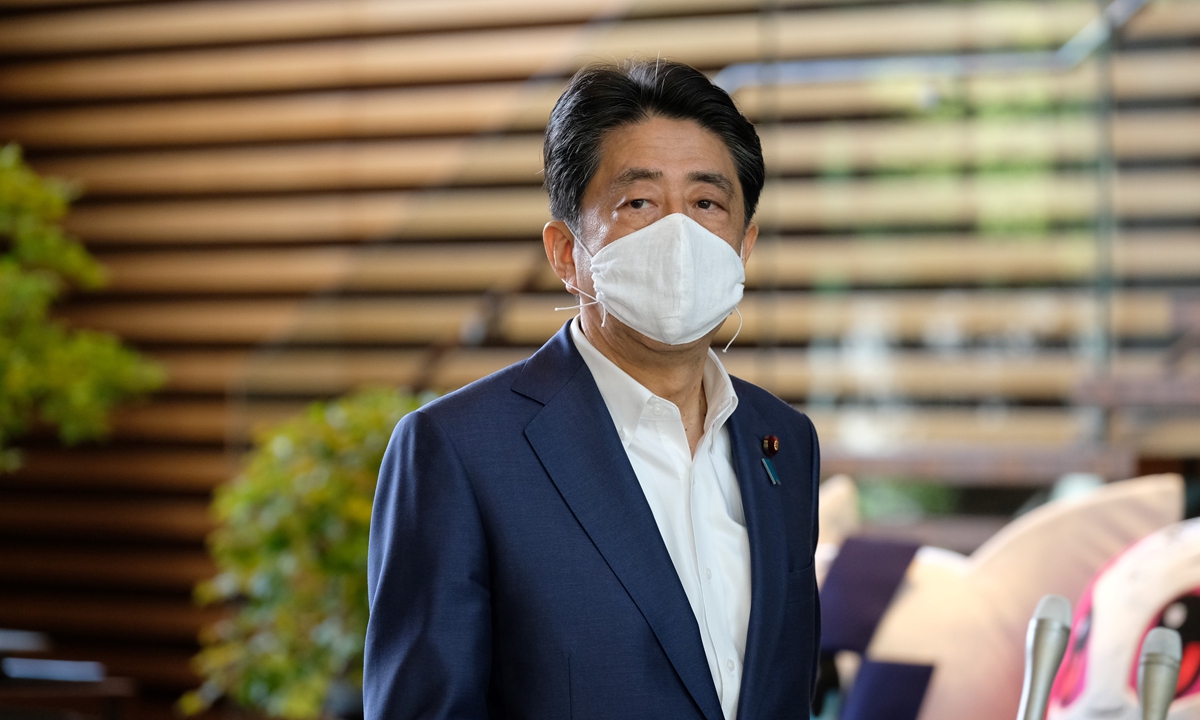Abe resignation complicates China ties: Global Times editorial
Source: Global Times Published: 2020/8/28 21:58:41

Shinzo Abe Photo: AFP
Japanese Prime Minister Shinzo Abe announced his resignation due to health reasons. His nearly eight-year tenure as Japan's longest-serving prime minister will end soon.Many Chinese people don't like Abe, mostly because he visited the Yasukuni Shrine in 2013 and tried to change Article 9 of Japan's pacifist constitution. He was often ridiculed on social media. Chinese netizens mocked him with the videos in which he "bowed" to American leaders, fell into a bunker during his golf game with US President Donald Trump, and ran to shake hands with Russian President Vladimir Putin. Some Chinese people also have the impression that Abe was active in boosting the Indo-Pacific alliance to counter China.
Abe served as prime minister twice, during which time China-Japan relations fluctuated. Relations plunged when he visited the Yasukuni Shrine, but he made efforts to bring bilateral ties to the right track. In the past two years, relations remained stable. But since the COVID-19 pandemic, Japan's China stance has swayed, partly due to the US' hardline approach to China.
Abe has always safeguarded national interests. As for China, he was tough and flexible. He ended Japan's political disorder when the country went through six prime ministers in five years. He is the longest-serving prime minister since World War II. This reflects his popularity in Japan. His Abenomics has won praise from Japanese society. In a nutshell, during those years, Japan retained its national strength.
The Chinese people should realize that the one liked by Japanese society is probably hated by the Chinese. This is the reality we have to face. This shows that the common interests of China and Japan and those between the two peoples need to expand. We should also pay attention to Japan's political reality and reduce frictions, or manage the impact of those frictions, so as to bring the two peoples closer.
That's because China is a major power and faced with strategic containment from the US. China must win the support of countries like Japan. Although Japan is a US ally, China is its largest trading partner. China can work to make Japan keep a certain distance from Washington's China policy, which is becoming increasingly radical. China can also persuade Japan to cooperate less with Washington in attacking China. This is more significant than the disputes between China and Japan.
From a long-term perspective, Japan is bound to pursue greater diplomatic independence from the US. Within the framework of the US-Japan alliance, keeping a strategic balance between China and the US fits Japan's interests. As for China, it should try to create a positive atmosphere for closer ties between the two societies.
Against the backdrop of complicated bilateral relations, a bumpy road lies ahead if the two are to open up a new diplomatic dynamic. It requires joint efforts, which, despite disturbances, are where bilateral relations could have a strategic value.
Posted in: EDITORIAL